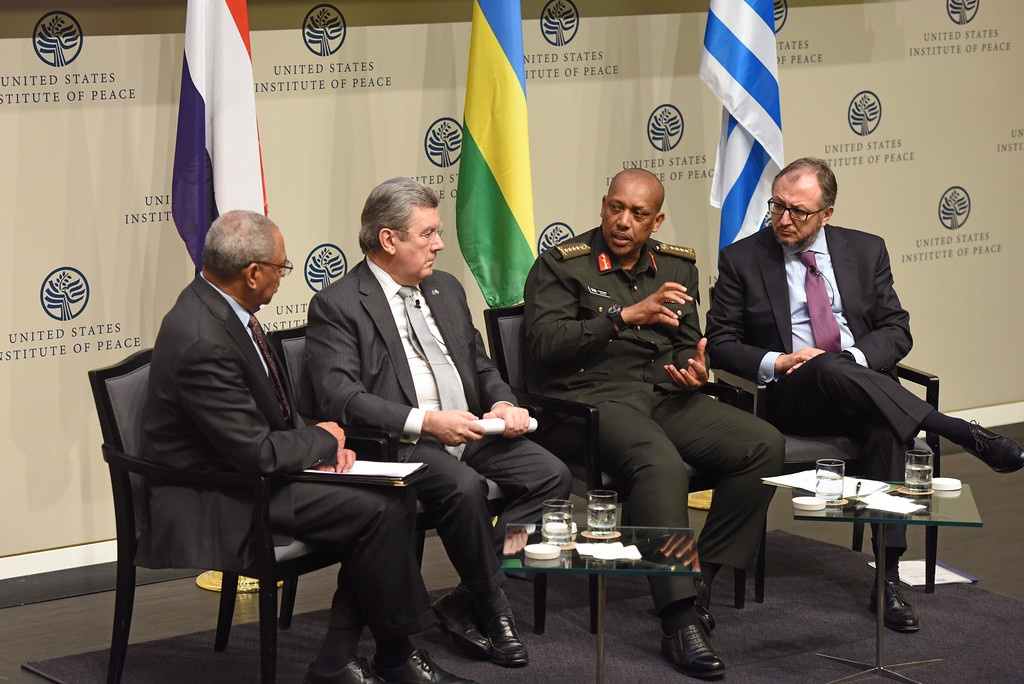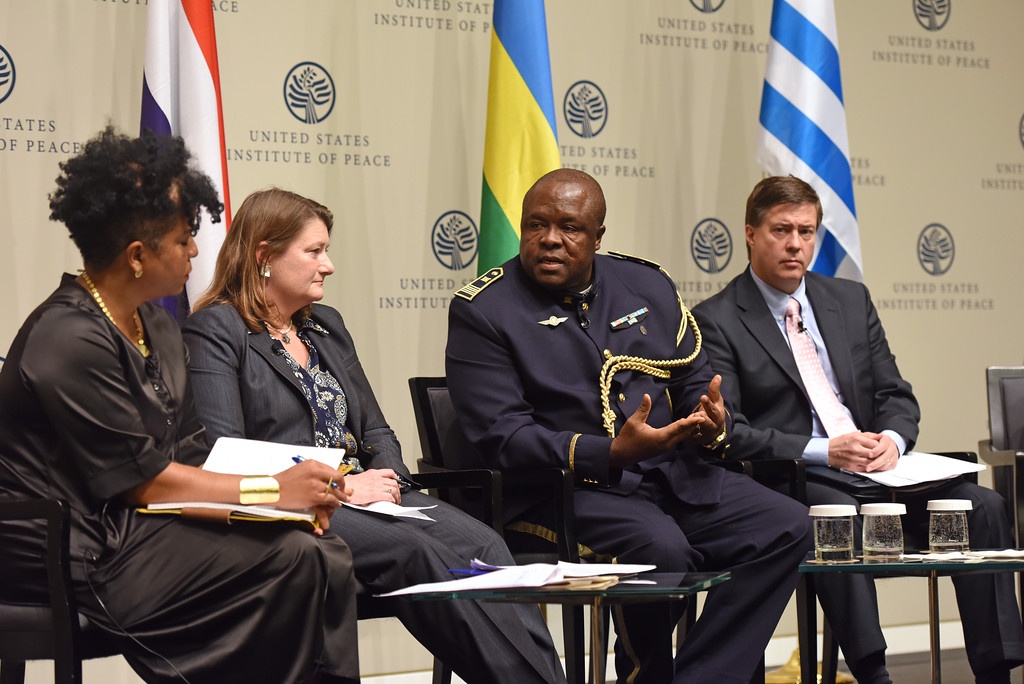- December 14, 2016
The Kigali Principles event took place at the United States Institute of Peace. Approximately 220 people attended, with a mixture of individuals from the government, academia, diplomatic corps, civil society, NGOs, militaries, police, think tanks and others. Rwanda worked on this project in collaboration with the U.S., Uruguay, Kingdom of the Netherlands, and USIP.
Welcoming remarks were offered by Nancy Lindborg, President at USIP, who thanked all invitees for their attendance and expressed USIP’s commitment to the cause of protection of civilians. After the opening remarks, Ambassador Mathilde Mukantabana gave a brief introduction of the Kigali Principles and reiterated the role that Rwanda has played in peacekeeping worldwide, and why the principles remain a standard of best practices in the protection of civilians.


Various speakers noted that Rwanda is a case of a nation that survived the failure of the protection of civilians, but that the initiative of the Kigali Principles will ensure that civilians do not continue to suffer during conflict.
Two panels made up of Ambassadors, representatives from troop contributing countries, DPKO representatives, U.S. representatives, and civil society representatives looked at the challenges in peacekeeping and ways to better the movement from mandate to implementation. Gen Nyamvumba shared his experience as a former UNAMID force commander, and shed some light on the challenges that arise on the ground, indicating gaps between mandate and what is needed in situations where civilians are threatened. Gen Nyamvumba as also highlighted the changing face of conflict from interstate to intrastate, stressing that the Kigali Principles are significantly more relevant today. Adequate training, minimization of caveats, and commitment from states were raised among other suggestions for tools to ensure proper and timely protection of civilians. Many also touched on the need for the UN to incorporate the Kigali Principles in their training documents to improve their impact.


The event was very well received, with engaging comments and questions from the audience. The discussion indicated that this was a useful conversation to bring to the community in the capital, closer to financial and political decision makers, as well as members of the diplomatic corps who can continue to push for the signing onto the Kigali Principles and advocate for the use of the Kigali Principles as a means for adequate peacekeeping.
You can watch the entire session below:
